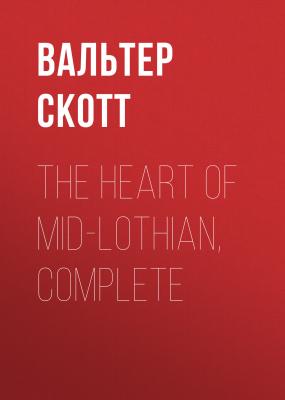ТОП просматриваемых книг сайта:
The Heart of Mid-Lothian, Complete. Вальтер Скотт
Читать онлайн.Название The Heart of Mid-Lothian, Complete
Год выпуска 0
isbn
Автор произведения Вальтер Скотт
Жанр Зарубежная классика
Издательство Public Domain
17
This little incident, characteristic of the extreme composure of this extraordinary mob, was witnessed by a lady, who, disturbed like others from her slumbers, had gone to the window. It was told to the Author by the lady’s daughter.
18
Note D. Memorial concerning the murder of Captain Porteous.
19
A beautiful and solid pathway has, within a few years, been formed around these romantic rocks; and the Author has the pleasure to think, that the passage in the text gave rise to the undertaking.
20
Dumbiedikes, selected as descriptive of the taciturn character of the imaginary owner, is really the name of a house bordering on the King’s Park, so called because the late Mr. Braidwood, an instructor of the deaf and dumb, resided there with his pupils. The situation of the real house is different from that assigned to the ideal mansion.
21
Immediately previous to the Revolution, the students at the Edinburgh College were violent anti-catholics. They were strongly suspected of burning the house of Prestonfield, belonging to Sir James Dick, the Lord Provost; and certainly were guilty of creating considerable riots in 1688-9.
22
The Author has been flattered by the assurance, that this naive mode of recommending arboriculture (which was actually delivered in these very words by a Highland laird, while on his death-bed, to his son) had so much weight with a Scottish earl as to lead to his planting a large tract of country.
23
Cheverons—gloves.
24
Note E. Carspharn John.
25
[The late Mrs. Elizabeth Hamilton.]
26
Note F. Peter Walker.
27
This custom of making a mark by folding a leaf in the party’s Bible, when a solemn resolution is formed, is still held to be, in some sense, an appeal to Heaven for his or her sincerity.
28
Note G. Muschat’s Cairn.

